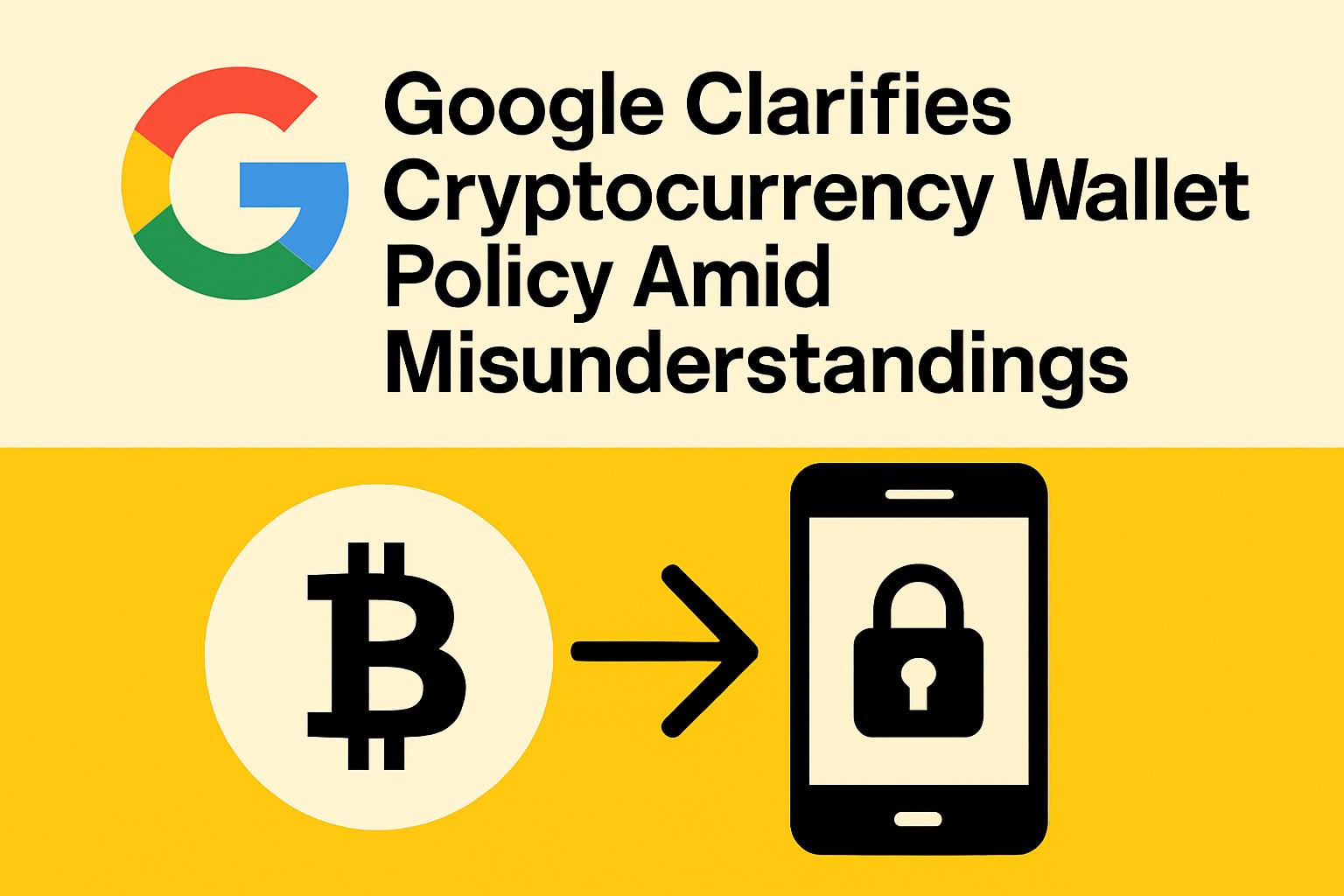Amid swirling controversy, Google recently found itself under the spotlight following an announcement regarding new policies for cryptocurrency wallet applications on its Play Store. This announcement seemed to suggest the potential banning of non-custodial crypto wallets in major regions like the US and UK, sparking widespread concern among developers and cryptocurrency enthusiasts about the future of Web3 applications.
Unpacking the Policy: Misunderstandings Abound
The alarm bells rang through communities when Google updated its Play Store policy documentation back in July. The revisions pertained to the Policies for Cryptocurrency Exchanges and Software Wallets. The document stated that those issuing cryptocurrency-related apps in the US must be registered with the Financial Crimes Enforcement Network (FinCEN) as Money Services Businesses (MSBs) and hold appropriate money transmitter licenses. Additionally, banks at the federal or state level were also included under these requirements.
With similar requirements set for the EU and the UK, the mention of ‘software wallets’ seemed to imply a broad application of these policies, inadvertently grouping non-custodial wallets with regulated entities. The community quickly reacted, assuming these wallets would be restricted or possibly banned.
A Wave of Concerns from the Crypto Community
The news, initially reported by publications like The Rage, caused a frenzy among crypto proponents. The collective voice on platforms like Twitter criticized Google for seemingly stifling the decentralization ethos of Web3, with fears that widely used non-custodial wallets like MetaMask and Trust Wallet would face operational hurdles.
Google Responds to Clear the Air
In light of the backlash, Google quickly moved to address the confusion. Through social media statements — particularly on Twitter (X), Google clarified: “Non-custodial wallets are not subject to the Google Play cryptocurrency exchange and software wallet policy.” This clarification was accompanied by a promise to update the help documentation to prevent further misunderstandings.
This categorical clarification means that non-custodial wallet providers, who empower users to control their own private keys and do not handle third-party asset custody, remain outside the purview of these restrictions.
Looking Ahead: Policy Changes and Future Updates
Despite the misunderstanding, the new policy governing custodial wallets and exchanges is still slated to go into effect on October 29. Google has committed to overcoming this communications hurdle by enhancing its documentation and guidance for developers to clarify the nuances of its policy.
As markets evolve, ensuring compliance for wallet apps that offer custodial or exchange services via local regulations remains a key consideration for developers aiming to feature their applications on Google Play.
This incident underscores the sensitivity and impact of regulatory changes in the rapidly evolving crypto sector, emphasizing the importance of clear communication and the distinction between custodial and non-custodial entities.

![[News] Bitcoin at a Turning Point? 10x Research Signals a Bullish Macro Shift Ahead](https://cryptoexplores.com/wp-content/uploads/2025/06/new20250616.jpg)
![[News] Binance Lists $HOME, the Gas-Free, Bridge-Free All-in-One DeFi App](https://cryptoexplores.com/wp-content/uploads/2025/06/news20250617.jpg)